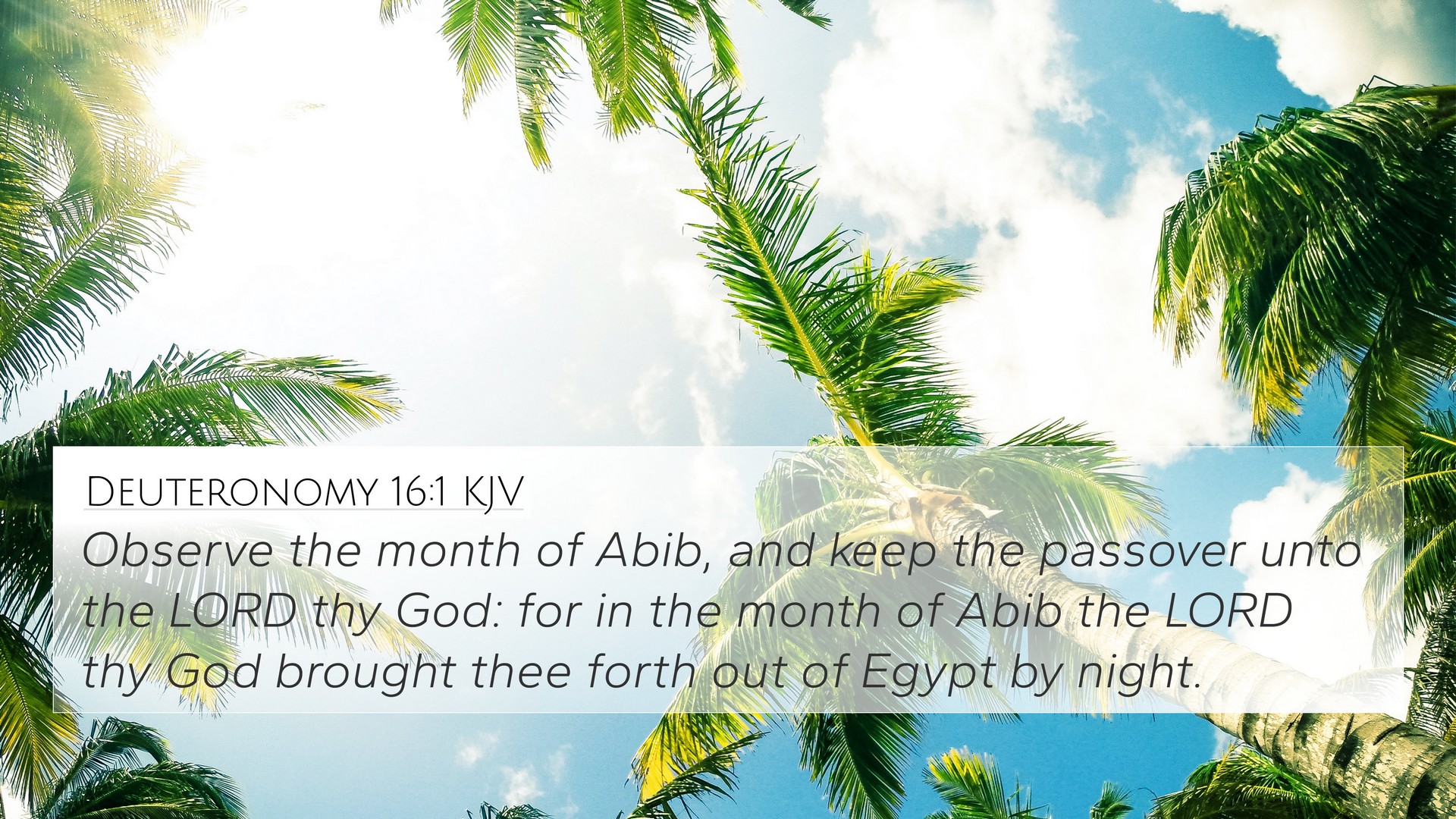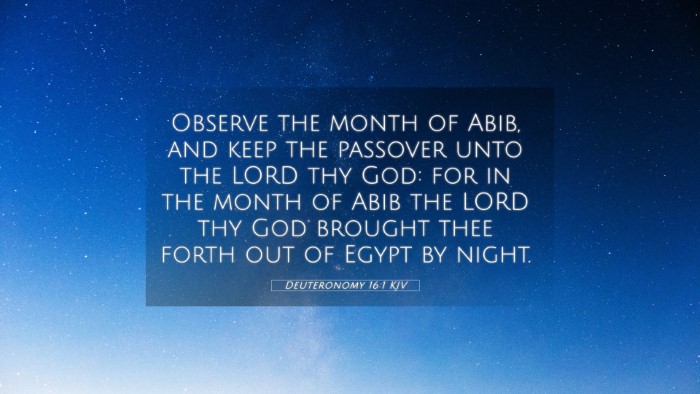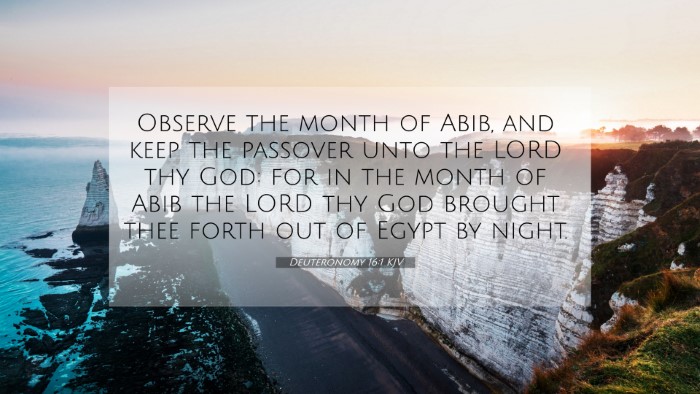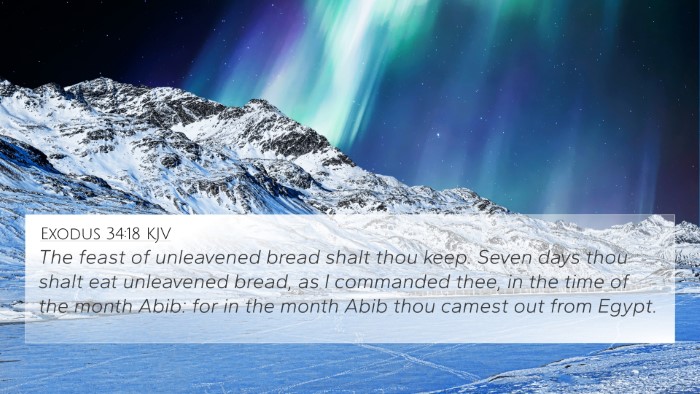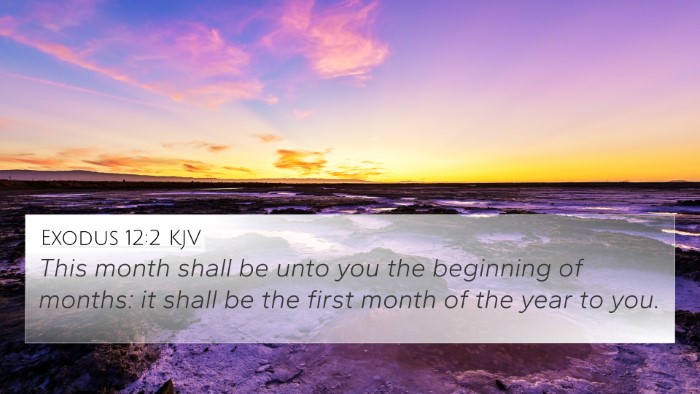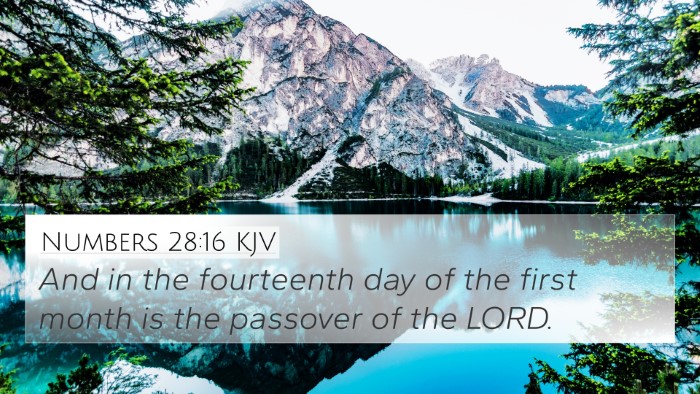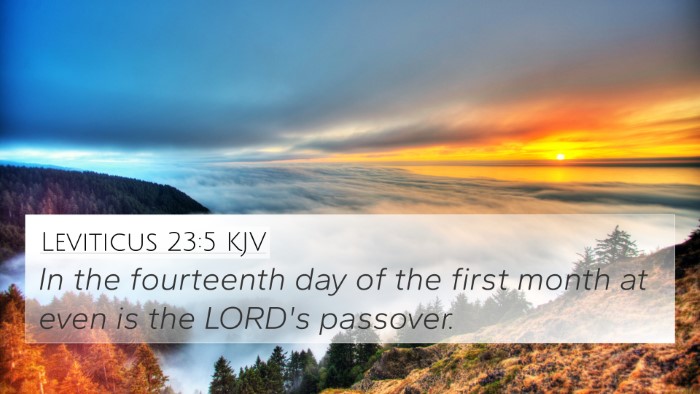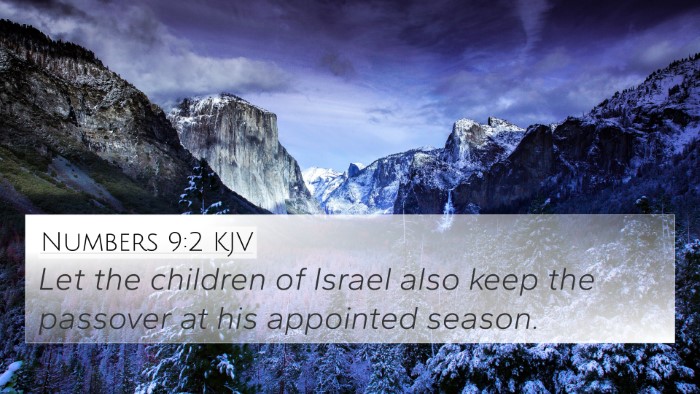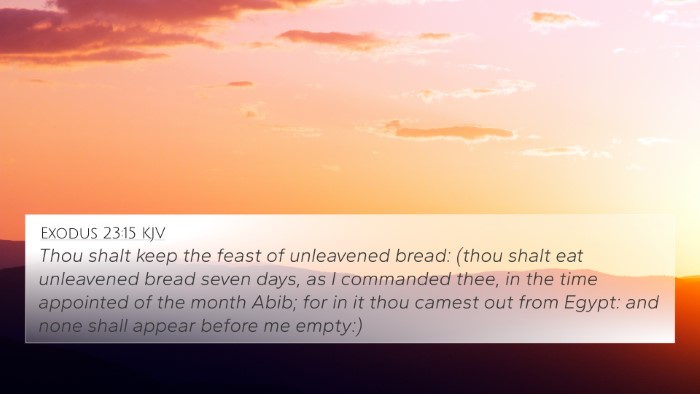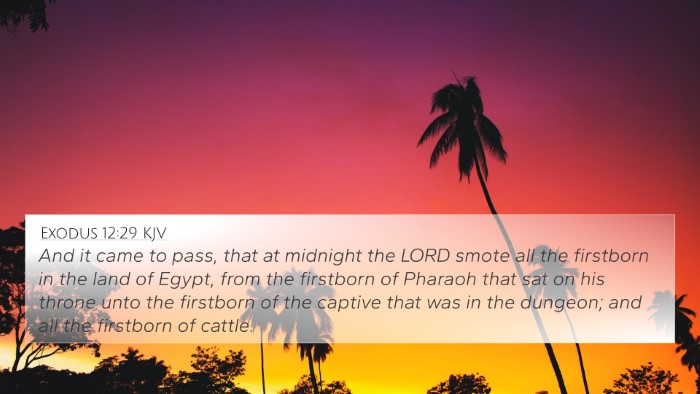Meaning of Deuteronomy 16:1
Deuteronomy 16:1 states: "Observe the month of Abib, and keep the passover unto the LORD thy God: for in the month of Abib the LORD thy God brought thee forth out of Egypt by night." This verse emphasizes the significance of recognizing the month of Abib, the timing of the Passover, and the historical event of the Exodus from Egypt. It stresses the importance of memory and continual observance of God's deliverance.
Key Themes and Insights
- The Month of Abib: Abib marks the beginning of the Hebrew calendar and signifies springtime, symbolizing renewal and liberation.
- The Passover: This festival commemorates Israel’s deliverance from slavery in Egypt, serving as a vital remembrance of God’s protection and salvation.
- Historical Context: The verse connects Israel’s past with their present and future through ritual observance.
Public Domain Commentaries Insights
Matthew Henry notes that the observance of the Passover is an essential element for Israel to remember their identity as God's chosen people. It calls them to celebrate their deliverance throughout generations, reinforcing their reliance on God.
Albert Barnes emphasizes that the Passover serves as a moment for both history and spiritual reflection. He points out that the command to keep the Passover acknowledges God’s sovereignty and mighty acts in Israel’s history.
Adam Clarke highlights that the phrase “by night” is significant in indicating the urgency and miraculous nature of Israel's exodus from Egypt. This suggests a divine intervention that requires perpetual remembrance through the observance of the festival.
Bible Verse Cross-References
- Exodus 12:1-14 - This account details the original Passover event, aligning with the commemoration mentioned in Deuteronomy.
- Leviticus 23:4-5 - This passage outlines the appointed feasts of the Lord, including Passover.
- Numbers 9:1-5 - This describes the observance of the Passover in the wilderness, reinforcing its significance.
- Deuteronomy 5:15 - Here, Israel is reminded of their past slavery in Egypt and the importance of observing the commandments in gratitude for their salvation.
- Psalm 105:43-45 - This Psalm reflects on God’s deliverance and faithfulness to His people, resonating with the themes of Exodus.
- Matthew 26:17-19 - This references the Last Supper which was a Passover meal, drawing connections between the Old and New Testament.
- Luke 22:1-15 - Similar to Matthew, this passage discusses the significance of Passover in the context of Jesus’ impending sacrifice.
- 1 Corinthians 5:7-8 - Paul refers to Christ as our Passover, highlighting the spiritual fulfillment of the Passover in the New Testament.
- Hebrews 11:28 - This verse mentions the Passover as a faith act that protected God’s people, connecting it to their belief in deliverance.
- Revelation 19:9 - This verse speaks of the marriage supper of the Lamb, echoing the celebratory themes common in the Passover tradition.
Connections Between Bible Verses
Deuteronomy 16:1 serves as a cornerstone for understanding core Biblical themes of deliverance and remembrance. It links the Old Testament practices with New Testament revelations, illustrating the continuity of God’s redemptive history.
For example, the detail from Exodus 12 enriches the understanding of the Passover motif, while the references in Matthew and Luke expand this theme into the narrative of Jesus’ sacrifice, forming an inter-Biblical dialogue that enhances the believer’s understanding of salvation.
How to Use Bible Cross-References
To deepen your understanding of Biblical texts:
- Utilize a Bible Concordance: This tool aids in finding connections between phrases and topics across various scriptures.
- Explore Cross-Reference Guides: Guides help in navigating related verses that illuminate thematic connections.
- Engage in Comparative Bible Verse Analysis: Analyzing phrases and concepts across verses can yield profound insights into Biblical teachings.
- Participate in Cross-Referencing Bible Study Methods: Group studies focusing on cross-referenced themes encourage shared learning and deeper comprehension.
- Examine Inter-Biblical Exegesis: Dive into how different parts of Scripture interact, revealing profound theological truths and applications.
Conclusion
Deuteronomy 16:1 not only serves as a reminder of God's past actions but also as a pivotal verse in understanding the continuity of God's redemptive plan throughout Scripture. By linking this verse to various cross-references, we can gain a more rounded understanding of its significance in both historical and theological contexts.
